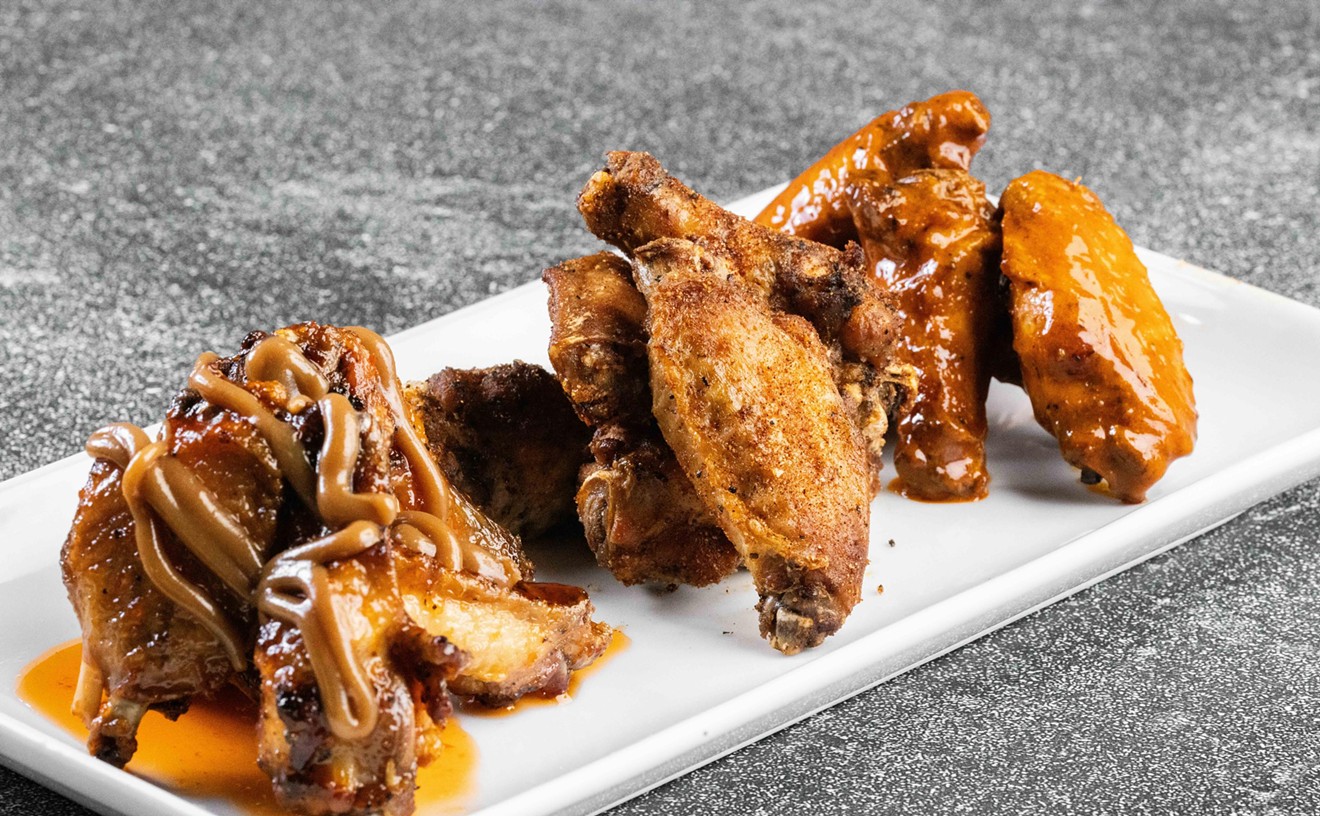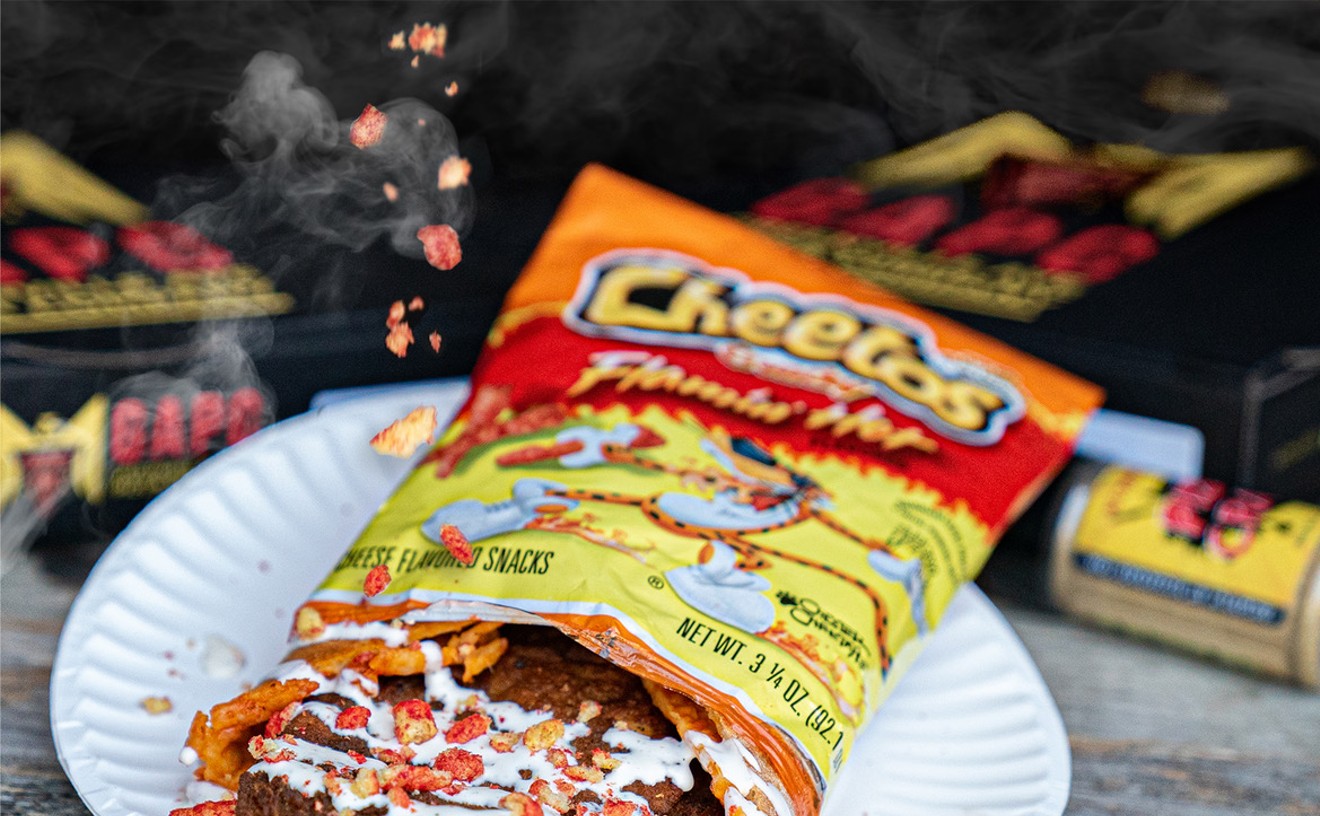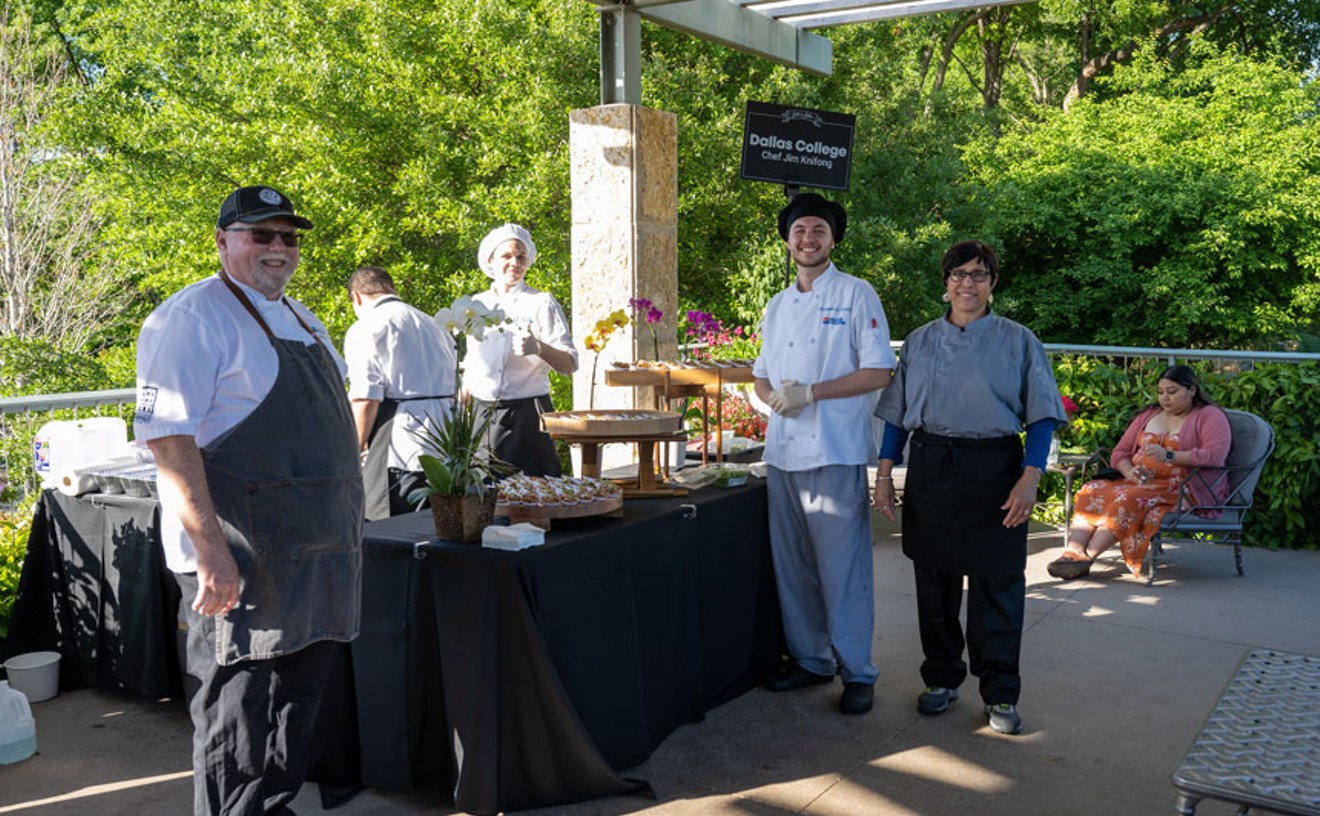After wrapping up "Purple Rain" by Prince in the main karaoke room at the office holiday party last night, I turned to a coworker's wife, who was sharing the stage with me, and said that was so much fun I was going to go sing it in the other karaoke room. She laughed and said, "Go for it!"
Ten minutes later, after starting in on my third vodka tonic, she walked into the other room, which was packed with almost all of the editorial staff at the Dallas Observer, and saw me at the mic, the words to "Purple Rain" on the screen behind me. Her eyes opened wide and slowly she said, "You. Weren't. Kidding. Were. You?"
Luckily, this embarrassing moment was as bad as it got for me at the office party. Ten days before, I decided to engage in a rather degenerate albeit lighthearted experiment with alcohol. Reflecting on years past, I was generally embarrassed of my behavior at the annual office holiday party. There was one year in New York City with my boss and coworkers that left me almost puking that night as we hopped from bar to apartment party.
The easiest solution for this year, in my mind, was to boost my tolerance to an appropriate level so that I could handle five drinks at the party and not look the fool for it.
Readers wrote in with suggestions ranging from the outrageous, such as
drinking copious amounts and pissing in flower pots, to the cautionary,
warning me to drink plenty of water. Before this experiment, I averaged
about a glass of wine a night. But the Monday before last I found
myself at my neighborhood liquor store buying bottles of whiskey and
vodka instead.
By Wednesday morning, the heavy drinking had begun to take a toll. The
night before, I had a few beers and two shots of whiskey. Now I had a
sharp headache just above my left eye. I told my fiancé, while
squinting my left eye due to the pain, that I felt terrible. Expecting
sympathy I was surprised when he playfully told me this: "Think of an
athlete in training. Sure, those reps made you sore, but does an
athlete give up after being sore?"
It was clear that I wasn't going to be let off the hook after just one rough night.
I drank more whiskey Wednesday night and was told on Thursday by a
coworker that I had "owl eyes." My physical appearance, while more
disheveled than usual, was the least of my concerns. I began to notice
that I felt differently, too. I was depressed and easily irritable.
On Friday morning, as I sat at my kitchen counter, hunched over a cup of coffee and flipping through Rolling Stone magazine, I convinced myself to abandon the experiment. How could I have been so reckless with my health?
But as I became engrossed in one article about the bank bailout, my
interest in rebellious behavior was instantly revived. I kept drinking,
but my states of emotional distress only increased. I woke up Saturday
morning feeling particularly depressed. After asking my fiancé about
the meaning of "happiness," he grew concerned about the effects this
experiment was having on me. Rather than quit, though, I took a marker
and scribbled "Trust," "Love," "Truth," and "Mystery," on my bathroom
mirror--some abstract principles I found helpful at that moment--and
decided to stay the hell away from whiskey.
That's why I was drinking vodka at the office holiday party. I had been
training for this, and the training had been excruciating. Now that my
coworker's wife was in the room and my repetitive singing of the same
song could be construed as drunk person behavior, I wrapped up the song
when the words finished (rather than waiting for the long instrumental
bit at the end of the song to end), took my seat and drank some water.
I had indeed boosted my tolerance, but at what cost to my physical and
emotional health?
"You ignored your body," said Dr. Bryon Adinoff, distinguished
professor in drug and alcohol abuse research at UT Southwestern, when I
called him the next morning for an expert opinion. "Your body is
telling you, 'I can't tolerate this' and you were essentially telling
it, 'too bad' ...Drinking is highly associated with depression and
anxiety. That should be one of the first questions you ask when
somebody comes in with depression."
Your tolerance, Adinoff explained, comes down to the efficiency of a
group of enzymes, but also your weight, gender and something called
"behavioral tolerance," which is basically how comfortable you have
become drinking in a particular situation. For some people, the rate at
which your acid aldehyde dehydrogenase enzymes break down alcohol
(acid) is less aggressive. "Yours doesn't work as well as other
people's," said Adinoff, about my enzymes. However, "you can build up
the rate over time by drinking. It will work better and faster."
And that, apparently, he noted, was what I had done.
Binge drinking is defined as more than four drinks in a night for a
woman (five for men), and Adinoff says such behavior is "high risk" for
alcohol abuse, dependence, and myriad psychological issues. However, he
points to popular research that shows drinking everyday does have
certain health benefits. Populations studied where women have one drink
a night, and men have two, have less cardiovascular disease. But any
more than that, Adinoff says, and the risks begin to outweigh the
benefits.
"Listen to what you're body is telling you," says Adinoff, about a safe
way to drink. "Gee, I'm not twenty anymore and maybe I need to listen
to my body and maybe not give in to the peer pressure."
Back inside the karaoke room, I finished another song and proceeded to
finish one more drink, bringing my total to four over the course of the
four hour night. I may not have achieved my original goal of drinking
five drinks in two hours, but I did realize something. For me, one
night of potential embarrassment is better than ten of binge drinking.
Now that this experiment is over, I can't wait to start drying out.










